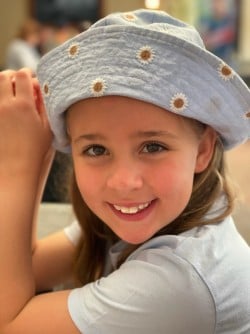Science
Australian Scientists Launch Groundbreaking Research on Childhood Brain Cancer

A team of scientists in Australia is embarking on a significant research project aimed at uncovering the genetic causes of diffuse midline glioma (DMG), a particularly aggressive form of childhood brain cancer. This initiative, led by Associate Professor Quenten Schwarz from the University of South Australia, will utilize advanced stem cell technology to investigate the genetic abnormalities associated with this devastating disease. Currently, DMG is untreatable, with an alarming average survival rate of only nine months following diagnosis.
The research team, which includes experts from both Adelaide and Sydney, aims to identify potential genetic drivers that could lead to improved treatment options over the next five years. Assoc Prof Schwarz emphasizes the urgent need for more research, stating, “There has been very little progress made in identifying the causes and finding effective treatments for DMG over decades. We need to do better.”
Innovative Approach to Research
This project will be carried out under the auspices of the Centre for Cancer Biology at UniSA, collaborating closely with the Children’s Cancer Institute in Sydney. The team plans to employ engineered and patient-derived stem cell technology to gain insights into the mechanisms behind DMG. “This grant offers an exciting opportunity to pioneer a new approach to uncover the genetic and environmental factors that lead to the development of childhood brain cancer,” Assoc Prof Schwarz added.
With the current lack of effective treatment options, the researchers hope that their findings will pave the way for new therapies. They aim to provide vital insights into how DMG originates, which could ultimately lead to better outcomes for affected children.
Personal Impact and Advocacy
The urgency of this research is underscored by personal stories, such as that of Steve Bickley, whose daughter Jess Bickley lost her battle with brain cancer in September 2023. Jess was diagnosed just five months prior, after experiencing recurring neck pain. Steve described the moment of diagnosis as “like a bolt out of the blue,” noting that they were told there was no cure and to “go home and make memories” during the limited time Jess had left.
In the wake of his daughter’s death, Steve has become a passionate advocate for cancer research, supporting various charities aimed at funding necessary studies into DMG. He expressed hope that this new research in Adelaide could spare other families from similar heartbreak in the future. “Research is vital into this cruel and devastating disease. It’s heartening to know that Adelaide has some of the best brain cancer scientists in the country who will be doing everything possible to uncover the causes and best treatment options for DMG,” he stated.
As the research progresses, the collaboration between leading brain tumour research groups across both cities promises to bring new hope for families affected by this challenging diagnosis. With the support of advocates like Steve Bickley, the scientific community aims to shine a light on DMG, ultimately striving for breakthroughs that could change the landscape of treatment for this deadly pediatric cancer.
-

 Lifestyle4 months ago
Lifestyle4 months agoLibraries Challenge Rising E-Book Costs Amid Growing Demand
-

 Sports3 months ago
Sports3 months agoTyreek Hill Responds to Tua Tagovailoa’s Comments on Team Dynamics
-

 Sports3 months ago
Sports3 months agoLiverpool Secures Agreement to Sign Young Striker Will Wright
-

 Lifestyle3 months ago
Lifestyle3 months agoSave Your Split Tomatoes: Expert Tips for Gardeners
-

 Lifestyle3 months ago
Lifestyle3 months agoPrincess Beatrice’s Daughter Athena Joins Siblings at London Parade
-

 World3 months ago
World3 months agoWinter Storms Lash New South Wales with Snow, Flood Risks
-

 Science4 months ago
Science4 months agoTrump Administration Moves to Repeal Key Climate Regulation
-

 Science3 months ago
Science3 months agoSan Francisco Hosts Unique Contest to Identify “Performative Males”
-

 Business4 months ago
Business4 months agoSoFi Technologies Shares Slip 2% Following Insider Stock Sale
-

 Science4 months ago
Science4 months agoNew Tool Reveals Link Between Horse Coat Condition and Parasites
-

 Sports4 months ago
Sports4 months agoElon Musk Sculpture Travels From Utah to Yosemite National Park
-

 Science4 months ago
Science4 months agoNew Study Confirms Humans Transported Stonehenge Bluestones









